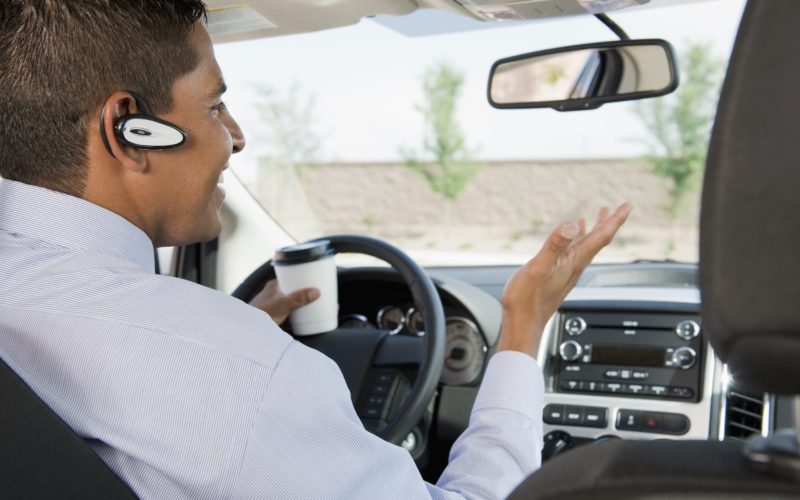Is hands-free really distraction-free driving?

Have you ever had a deer suddenly dart right into the path of your car while you were driving? Or, worse yet, a small child? I have experienced both scenarios and thankfully avoided any life-changing tragedies.
But what would have happened if I had been on my Bluetooth? I have one of the more up-to-date hands-free systems in my car. My eyes don’t need to leave the road to talk or make a call while I’m driving. But would my reaction time be quick enough to avoid a tragedy? Was the phone call about dinner plans with my husband really that important? Could my son’s question have waited until I arrived to my destination? Is there really anything I can do to help anyone when I am driving anyway?
A recent National Safety Council poll shows that 80 percent of U.S. drivers believe hands-free calling is safer than using a handheld device. I spend a lot of time driving during the day going to programs to talk to young drivers and pre-drivers about the dangers of distracted driving. Like everyone else, I also have a lot of people in my life who depend on me like my husband, grown sons, parents and mother-in-law.
The law in the state of Delaware allows me to drive and still talk on my phone as long as I use a hands-free system. Seems like a perfect set up for someone who spends a great deal of her work time on the road.
But are our hands-free devices really safe enough to avoid a tragic car crash? Advances in technology in cars today have prompted researchers to consider how this technology effects driver distraction. Here are some of the most recent research findings:
- A recent study by the AAA Foundation for Traffic Safety has shown that hands-free features in dashboards can actually increase mental distractions.
- Texas A & M Transportation Institute studied the use of voice-to-text technology and found it was more distracting than typing a text while driving.
- Texas A & M Transportation also found that drivers who text with their hands or voice (using text-to-speech) keep their eyes on the road less often and have reactions twice as slow.
What about our young drivers? Most parents want their children to put their electronic devices away while driving. But, after telling them not to use their devices, they see us having conversations about dinner plans while driving 65 miles per hour down route 1. They are watching us and we are their best role model. Can we honestly tell them that our many years of driving experience will prevent a tragedy? What if that car coming toward us at 50 mph on the 2-lane road crosses the center line? Will our reaction time be quick enough to avoid a collision?
Are we really distraction free when we are talking or texting hands free?